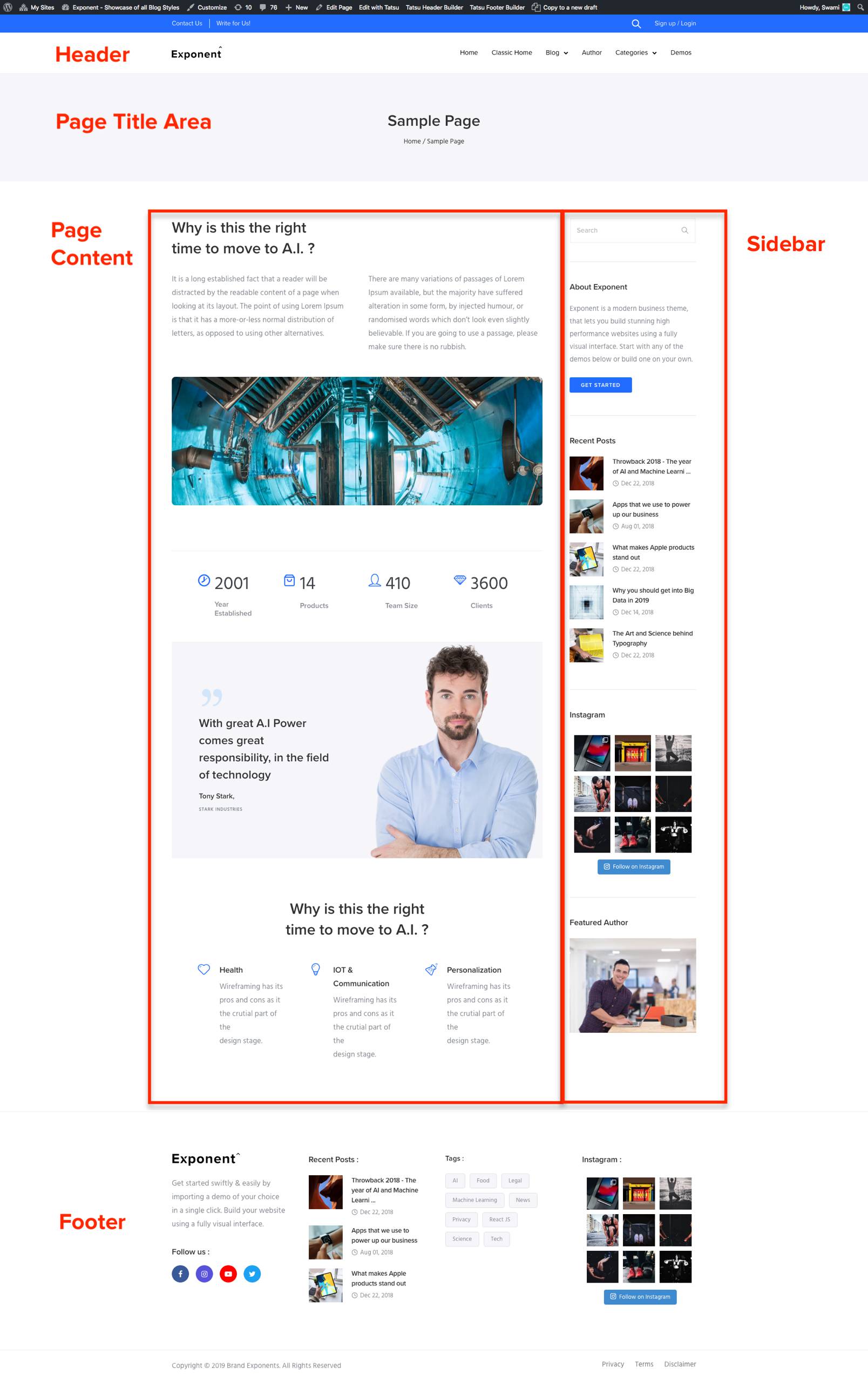In this article we will examine the anatomy of a webpage created using Exponent and how the settings / options to customise the various parts of the website are organised.

The theme comes with a basic built in header with logo and navigation. However we have used Tatsu’s Header Builder to build advanced headers showcased in our demos and recommend you to do the same. Click here to know all about the Header Builder. To hide the default header, please turn off the Show Header setting in the Appearance -> Customize -> Global Site Settings panel.
If you have strarted building your site by importing one of our dmeo, note that the default Header will be turned OFF and the respective Header builder using the Header builder will be present.

A global setting in the Customizer under Appearance -> Customize -> Global Site Settings to turn on/off the title area with houses the Page Title and Breadcrumb navigation. You can also use Tatsu’s Global Sections feature to create advanced Title areas.

We use Tatsu’s page builder to create the advanced responsive page layouts. Pages are built using Structural Blocks such as Sections, Rows & Columns and Styling & Content modules such as Text, Buttons, Icons, Videos, Maps, Galleries etc. Tatsu provides a fully visual interface for building your pages. Click here to know all about Tatsu’s Page Builder.
The content in the sidebar is created using Widgets. You can add and customise widgets from the APPEARANCE -> WIDGETS panel. The theme registers a few Sidebar areas by default. You can also create Custom Sidebars and use different Sidebars for different pages. Learn all about Sidebars here.
The theme comes with a basic built in Footer Widget area with 4 columns and a space for housing the Copyright text. However we have used Tatsu’s Footer Builder to build advanced footers showcased in our demos and recommend you to do the same. Click here to know all about the Footer Builder. To hide the default footer, please turn off the Show Footer setting in the Appearance -> Customize -> Global Site Settings panel.
